Understanding Flight Delays

Flight delays are an unfortunate reality of air travel, often leading to frustration, anxiety, and disrupted plans. Imagine arriving at the airport early in the morning, excited for a long-awaited vacation or an important business meeting, only to see the dreaded word “Delayed” next to your flight number. While airlines strive to maintain punctuality, various factors can cause delays, some within the airline’s control and others beyond it. Understanding why your flight is delayed not only alleviates some of the stress but also empowers you to take appropriate actions and minimize the impact on your journey. By delving into the common causes of flight delays, travelers can better prepare and adjust their plans accordingly.
Common Causes of Flight Delays
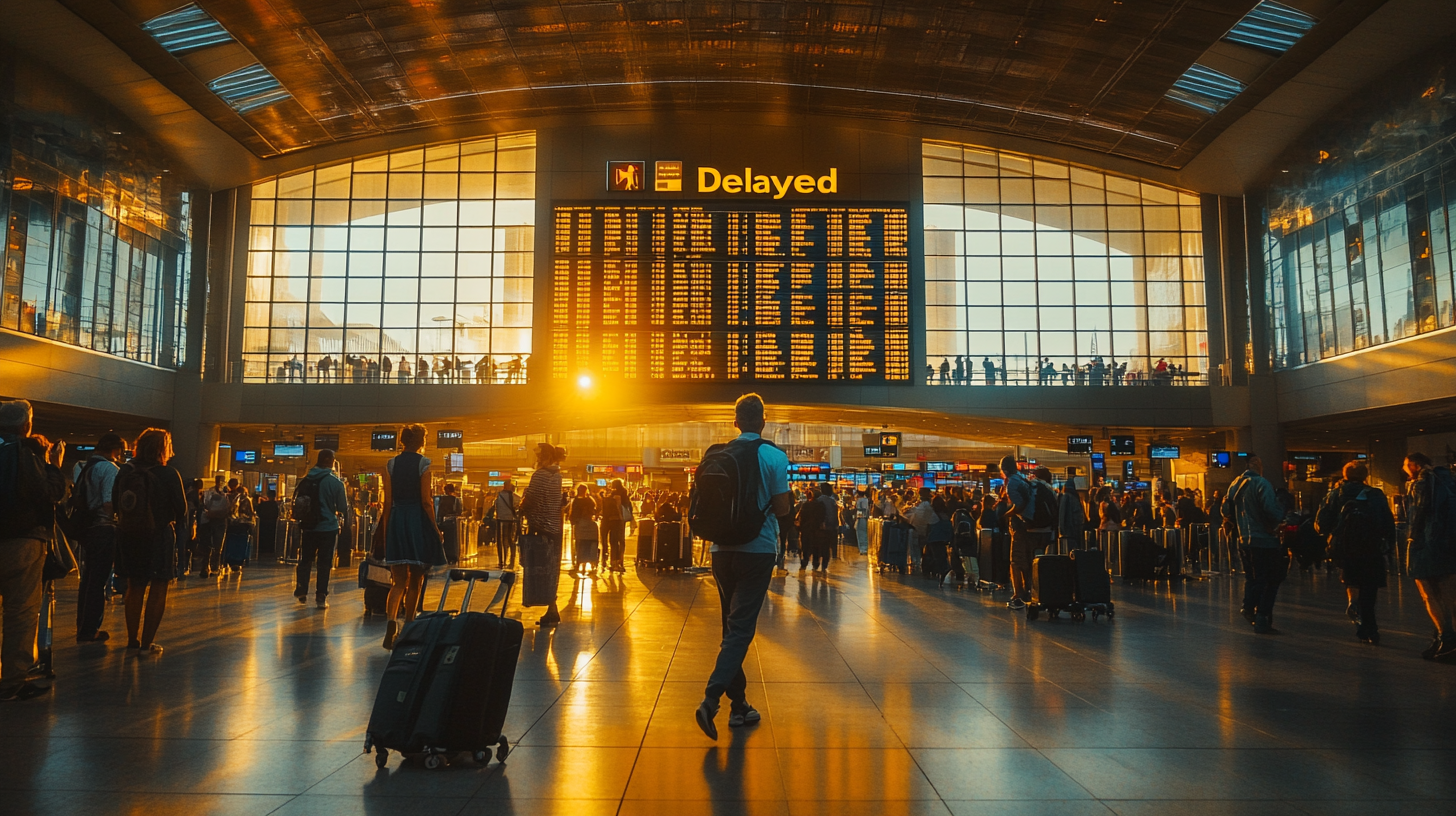
Weather-Related Delays
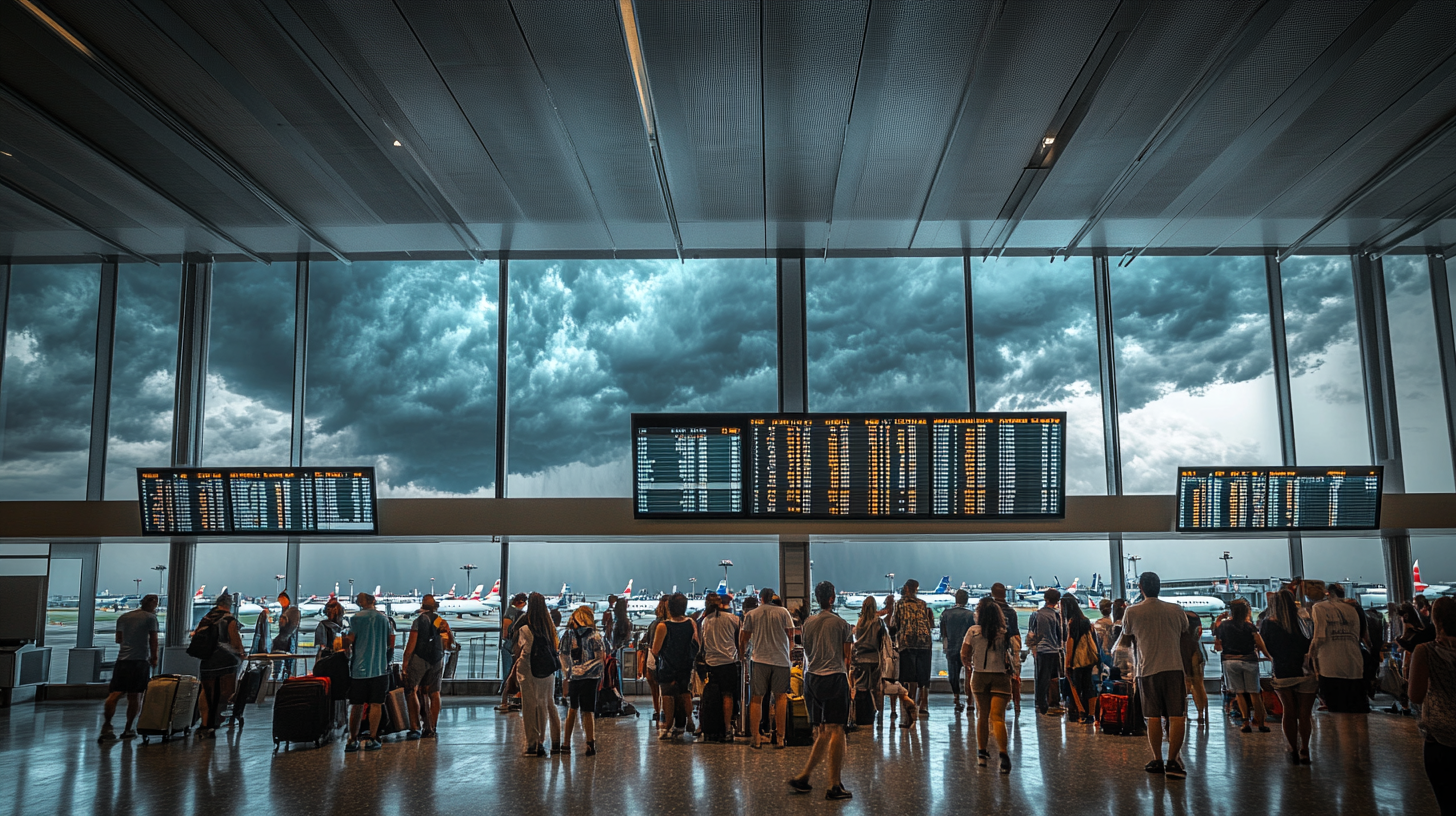
Weather is one of the most frequent and unpredictable causes of flight delays, capable of disrupting even the most meticulously planned schedules. Adverse conditions such as snow, heavy rain, storms, strong winds, and reduced visibility can significantly impact flight safety and operational procedures. For instance, during the winter months, snow and ice accumulation on aircraft surfaces necessitate time-consuming de-icing procedures to ensure the aircraft can safely take off. Severe thunderstorms may lead to temporary ground stops, as airlines choose to avoid flying through hazardous conditions that can jeopardize passenger safety. Strong crosswinds can exceed the safe operational limits for takeoff and landing, resulting in delays or even diversions to alternate airports. Understanding how weather affects flights is essential; resources like the Guide to Weather Impacts on Flights provide detailed insights into these challenges. Since weather conditions are beyond the airline’s control, these delays often do not result in compensation for passengers, as they are classified under “Acts of Nature” or “Force Majeure” events.
Mechanical Issues
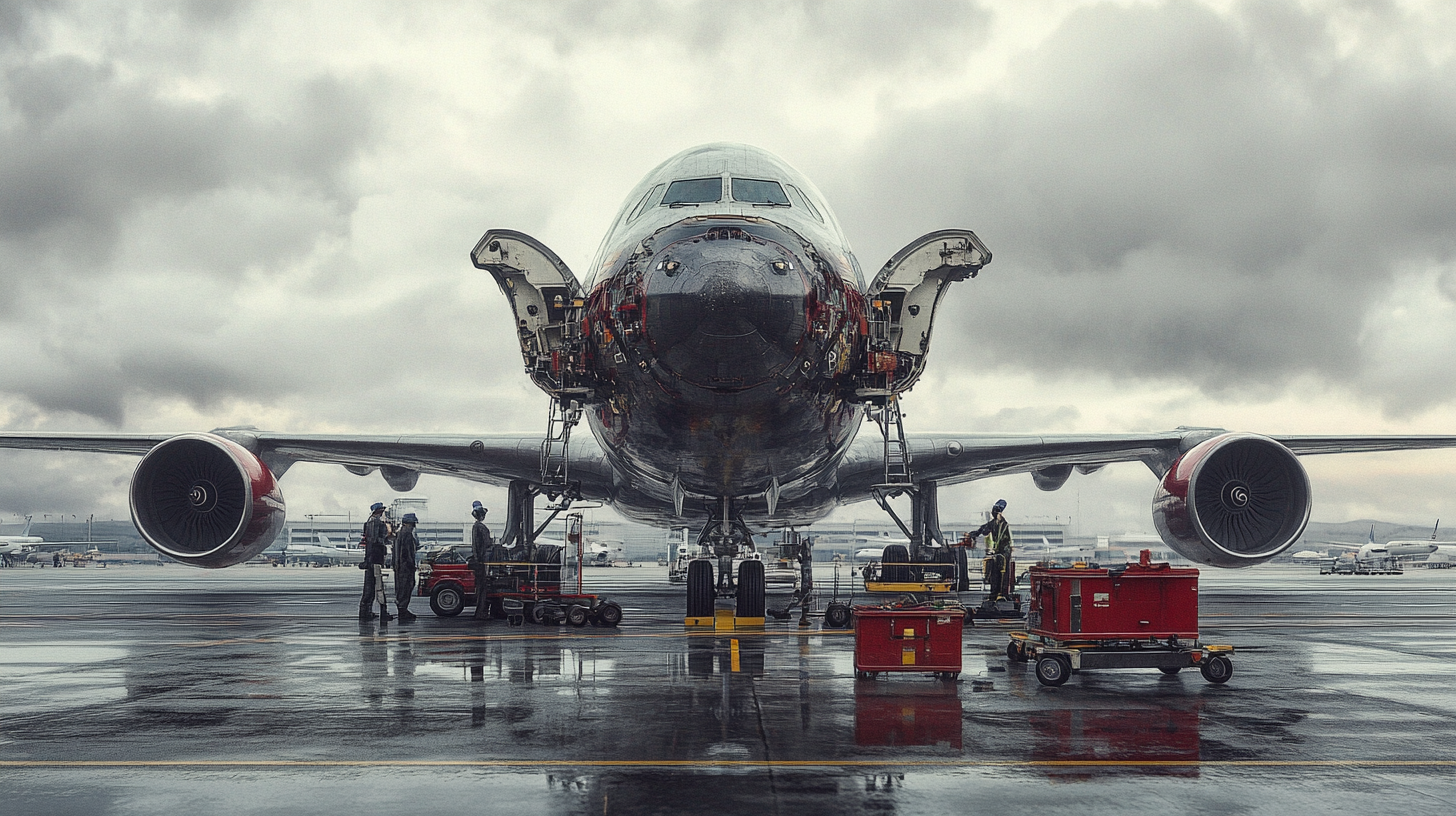
Mechanical issues, while inconvenient, are critical to address to ensure the safety of everyone on board. The safety of passengers and crew is the airline’s top priority. Before every flight, airlines perform comprehensive mechanical checks, following stringent safety protocols mandated by aviation authorities. If a potential issue is detected—be it a minor sensor malfunction or a more significant mechanical fault—immediate repairs or further inspections are required, leading to delays. For example, if a routine check reveals abnormal engine readings, the maintenance team must investigate and resolve the issue before clearing the aircraft for departure. Passengers can refer to the Aircraft Safety and Maintenance Procedures Explained to better understand the importance of these checks. While mechanical problems are internal to the airline’s operations, addressing them promptly is essential for maintaining high safety standards. Airlines understand that delays are frustrating, but safety cannot be compromised under any circumstances. Flight crews are trained to handle such situations professionally, keeping passengers informed about the reasons for the delay and expected timeframes.
Air Traffic Control and Congestion

Air traffic control and congestion are significant contributors to flight delays, particularly at busy airports during peak travel times such as holidays and major events. Airports and surrounding airspace have a finite capacity for handling flights safely. When the number of scheduled flights exceeds this capacity, delays are inevitable. For instance, major hubs like Atlanta’s Hartsfield-Jackson or London’s Heathrow can experience bottlenecks due to the sheer volume of air traffic. Air Traffic Control (ATC) plays a crucial role in ensuring that aircraft take off, fly, and land safely. To manage the heavy traffic flow, ATC may implement ground delay programs, causing flights to be held at their departure airports, or adjust flight paths en route to alleviate congestion. These measures, while causing delays, are essential for maintaining safety and preventing mid-air collisions or runway incidents. For more insight into how ATC manages these complex operations, refer to the Inside Air Traffic Control Operations and Flight Delays .
Crew Challenges
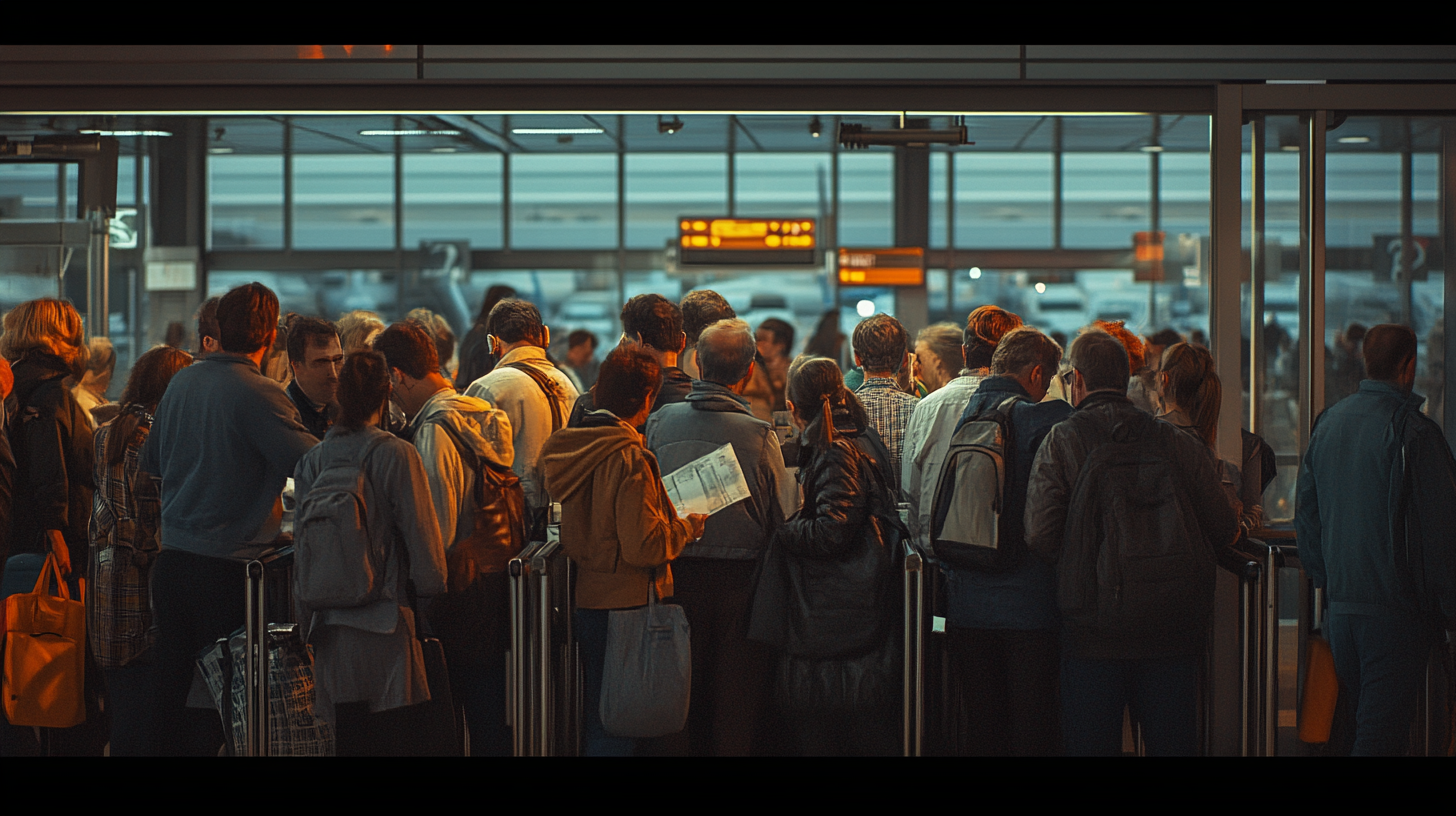
Flight crew availability is a critical component of any flight operation. Crew-related issues, such as scheduling problems, crew shortages, or unexpected staff illness, can result in significant delays. Regulations set by aviation authorities, such as the Federal Aviation Administration (FAA) in the United States, require that flight crews have mandatory rest periods between shifts to prevent fatigue—known as “crew duty time limitations.” Imagine a scenario where a flight crew has been delayed on a previous flight due to weather or mechanical issues. They may “time out,” meaning they can no longer legally operate another flight without adequate rest. In such cases, the airline must find a replacement crew, which can be challenging on short notice, especially at smaller airports or late at night. Understanding these regulations can help passengers appreciate why delays occur; the Flight Crew Duty Time Regulations Explained provides detailed information on these requirements.
Passenger Boarding Issues
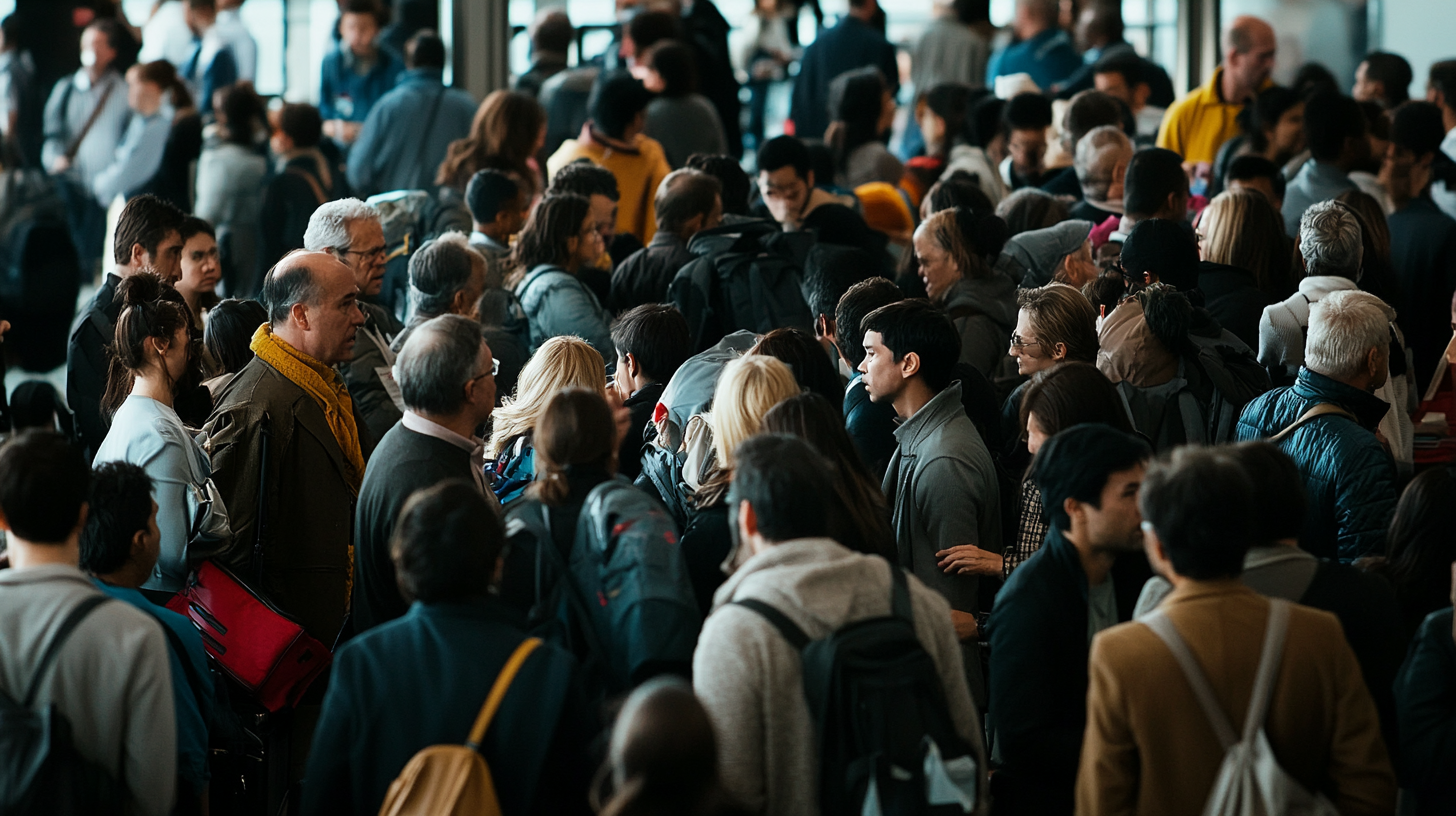
Passenger-related factors can also contribute to flight delays. Delays can occur when flights wait for connecting passengers whose previous flights have arrived late. Airlines may choose to hold a flight for a few minutes to allow these passengers to make their connection, preferring this over the inconvenience of rebooking them and handling their checked luggage. Additionally, issues during the boarding process can slow down departure times. Passengers may encounter problems with seating assignments, such as families wanting to sit together or issues with double-booked seats. Overhead bin space for carry-on luggage can quickly become limited, causing congestion in the aisles as passengers search for space or rearrange belongings. Furthermore, pre-boarding procedures, such as verifying travel documents on international flights, assisting passengers with special needs, or resolving ticketing issues, can take extra time. For tips on how to streamline your boarding experience and minimize delays, refer to the Efficient Air Travel Tips for Passengers .
Security Threats and Industrial Strikes
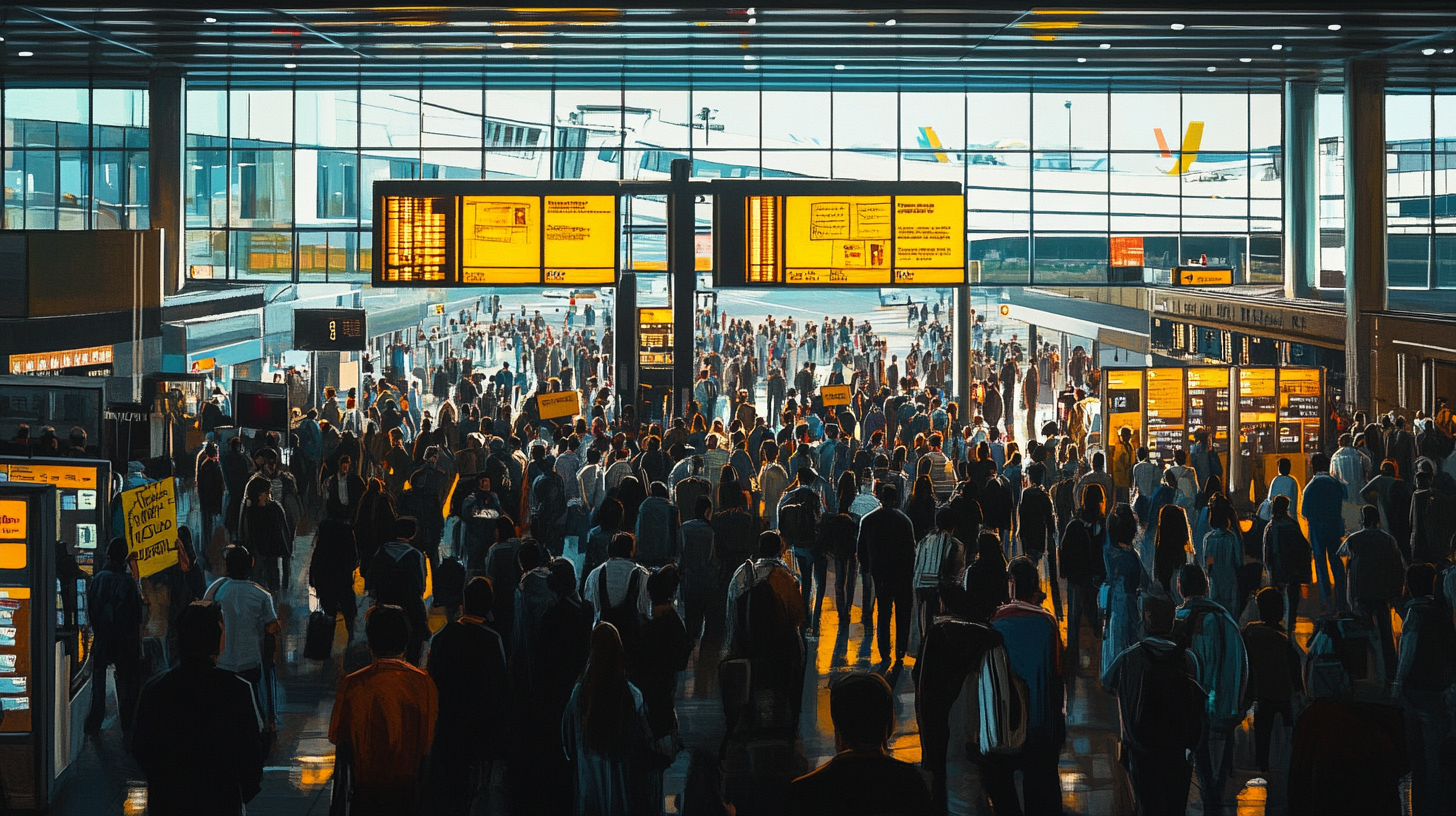
Security concerns are taken very seriously in the aviation industry. Any perceived threat, such as unattended luggage, suspicious behavior, or security breaches, necessitates immediate and thorough investigation. For example, if a suspicious package is found in the terminal, security protocols may require evacuation of certain areas and a halt to all flight operations until the situation is resolved, resulting in significant delays. Similarly, industrial actions such as strikes by airline, airport staff, or air traffic controllers can lead to widespread disruptions. For instance, a pilot strike could ground an airline’s entire fleet, or an air traffic controller strike could halt flights over a particular airspace. These situations are often unexpected and require resolution before normal operations can resume. Passengers can stay informed about such developments by following the Latest News on Airline Strikes and Security Alerts .
Cargo and Weight Constraints
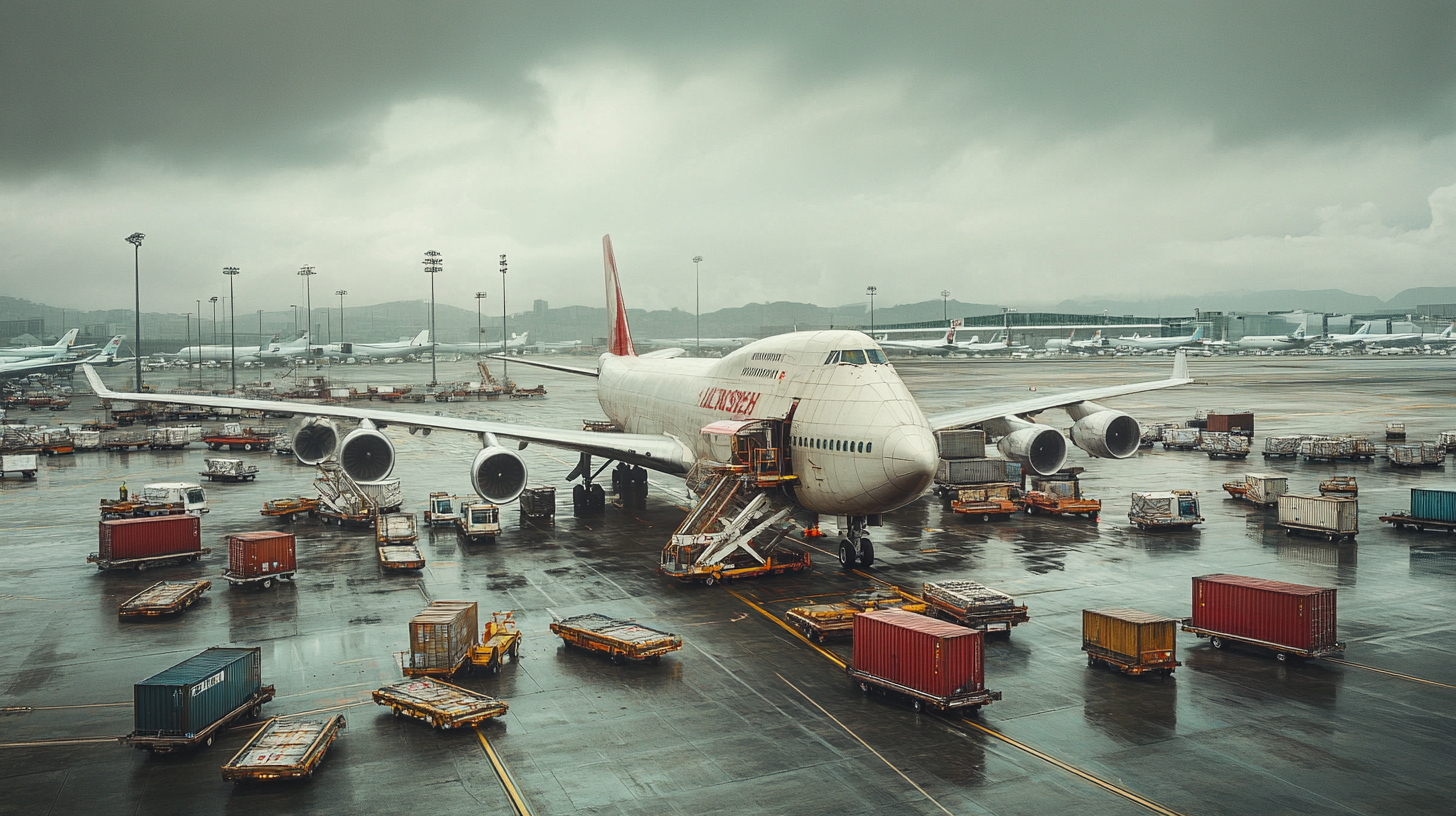
Every aircraft has precise weight and balance specifications that must be adhered to for safe operation. Delays may occur if adjustments are needed due to weight imbalances, cargo loading issues, or the need to remove or redistribute luggage and freight. For instance, if an aircraft is overloaded or improperly balanced, it may not perform as expected during critical phases of flight such as takeoff and landing. Sometimes, flights are overbooked or have more cargo than anticipated, which may require gate agents to ask for volunteers to take a later flight or to offload some luggage or cargo. This process can be time-consuming, especially if passengers need to be rebooked and their luggage retrieved from the aircraft hold. Understanding how weight and balance affect flight safety can be found in the Aircraft Weight Balance and Safety Dynamics .
The Impact of Flight Delays
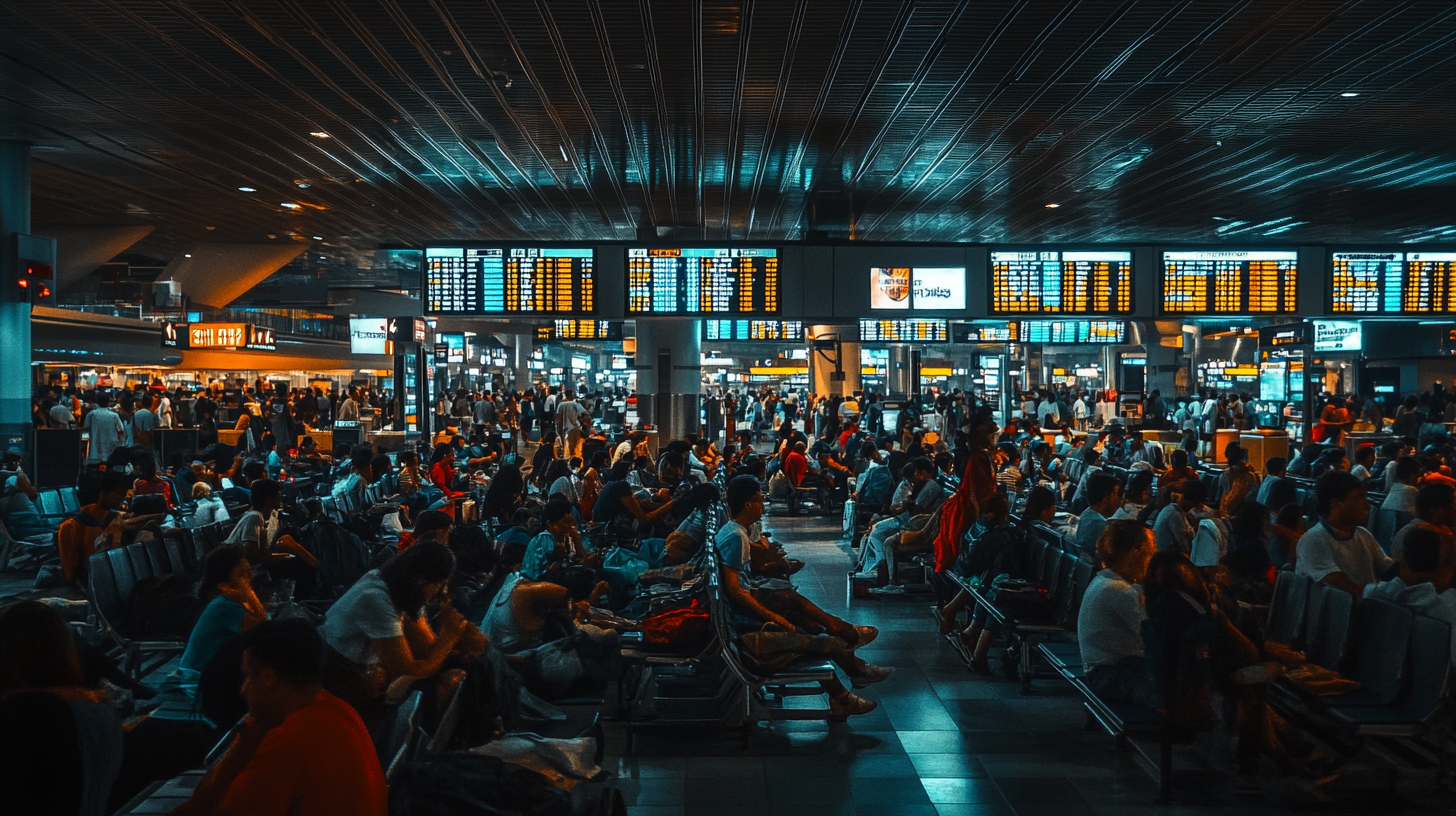
Flight delays have repercussions that extend beyond just a later arrival time. They can lead to missed connections, stranding passengers in unfamiliar airports or cities. Missing a connecting flight may also mean missing important events, whether it’s a crucial business meeting, a family gathering, or the start of a vacation. Delays can also result in additional expenses, such as purchasing meals at the airport, booking last-minute accommodations, or incurring fees for changing travel plans. For frequent travelers, these disruptions can accumulate, causing significant inconvenience and stress. In some cases, delays can lead to cancellations, forcing passengers to rearrange their entire itinerary. The uncertainty and lack of control over the situation can be particularly stressful. By understanding the potential impact, travelers can better prepare and respond effectively when delays occur, such as by planning for longer layovers or purchasing travel insurance. For strategies to mitigate the effects of flight delays, consider reading Coping with Flight Delays and Travel Disruptions .
Understanding Your Rights and Compensation
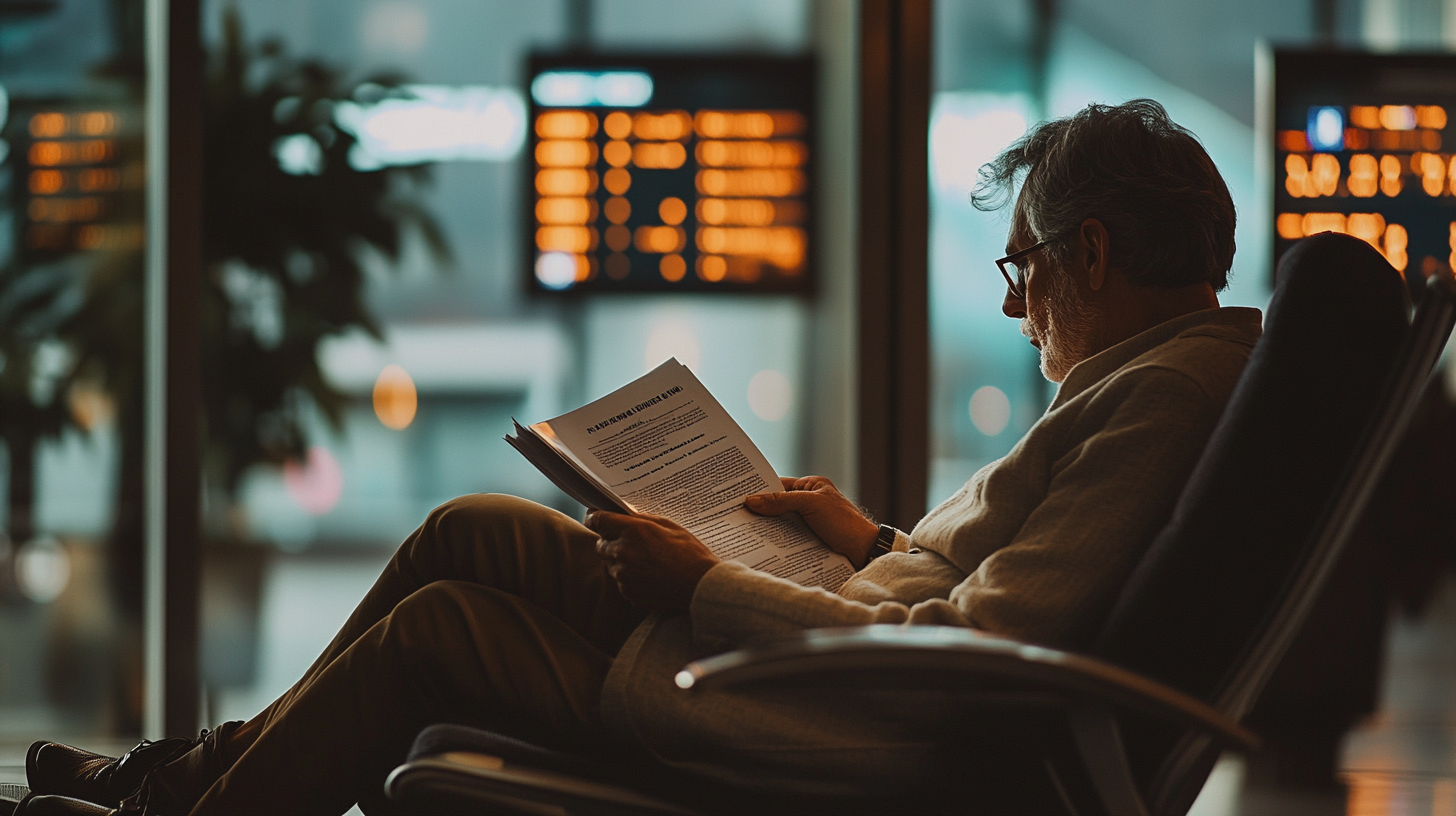
In the United States, airlines are not legally required to compensate passengers for flight delays, unlike in some other regions like Europe, where regulations like EC 261/2004 mandate compensation for delays exceeding certain durations. However, airlines in the U.S. may offer compensation at their discretion, especially for delays within their control, such as mechanical issues or crew shortages. Understanding the nuances of airline policies can help passengers know what to expect and how to advocate for themselves in these situations.
The U.S. Department of Transportation (DOT) has initiated efforts to improve transparency and support passengers. The DOT’s Airline Cancellation and Delays Dashboard provides up-to-date information on services U.S. airlines commit to offering in the event of controllable cancellations or delays. This tool helps passengers quickly assess what amenities or compensation they can expect from different airlines. A green check mark indicates an airline’s commitment to specific services, such as rebooking on the same airline at no additional cost, meals, or hotel accommodations. A red “X” means no such commitment, though services may still be provided at the airline’s discretion.
Compensation may include meal vouchers, hotel accommodations for overnight delays, or refunds. It is essential to check your airline’s policies and consult the DOT dashboard to understand your entitlements fully. Some airlines also have “Customer Commitments” or “Contracts of Carriage” that outline their policies in case of delays and cancellations. For more detailed information on passenger rights, refer to the Comprehensive Guide to Air Passenger Rights and Compensation .
Strategies to Handle Flight Delays
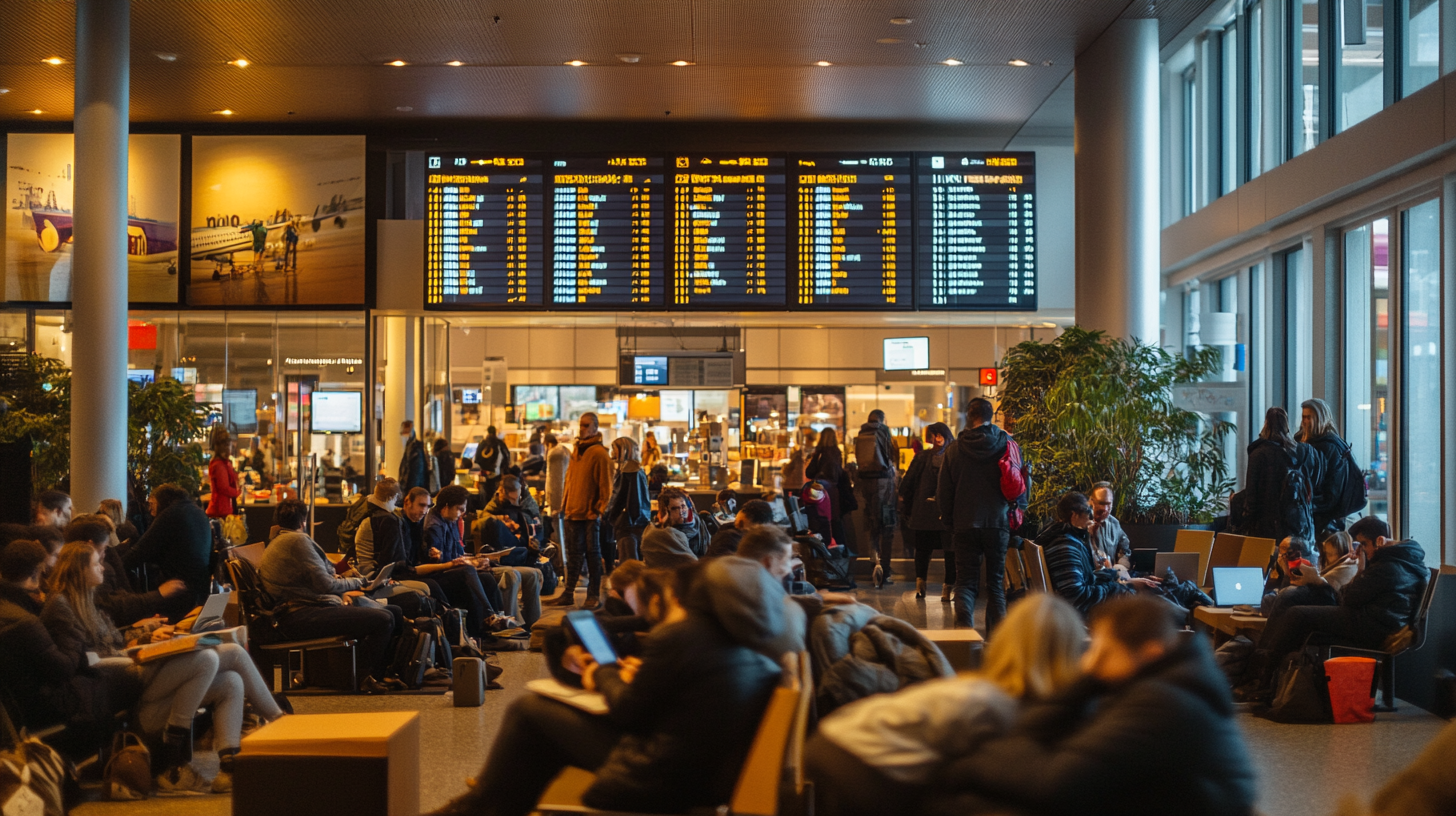
Stay Informed Using Flight Tracking Tools

Staying informed about your flight status is crucial in dealing with delays. Utilizing flight tracking resources helps passengers stay ahead of potential delays and adjust their plans accordingly. Here are some valuable tools and applications to consider:
- FlightAware: Provides real-time flight status and tracking information. Users can track flights globally, receive notifications about delays, cancellations, and gate changes, and view live flight maps. The FlightAware app allows passengers to monitor specific flights and get timely updates.
- Flightview: Offers comprehensive travel management tools, including flight tracking, itinerary management, and real-time airport updates. Flightview keeps you informed with weather forecasts and airport delays, helping you stay prepared for your journey. The app also allows users to share their itinerary with others and sync with calendars.
- FAA’s Airport Status and Delays Webpage: Offers updates on airport conditions and potential delays across the United States. The Federal Aviation Administration (FAA) provides current information on airport closures, ground delays, and other advisories that may impact flights.
- Airline Mobile Apps: Most airlines offer mobile apps that provide up-to-the-minute information on flight status, gate changes, and baggage tracking. Enabling push notifications ensures you receive immediate updates regarding your flight.
For a comprehensive list of flight tracking tools and how to use them effectively, see Best Flight Tracking Apps for Travelers .
Book Early Flights
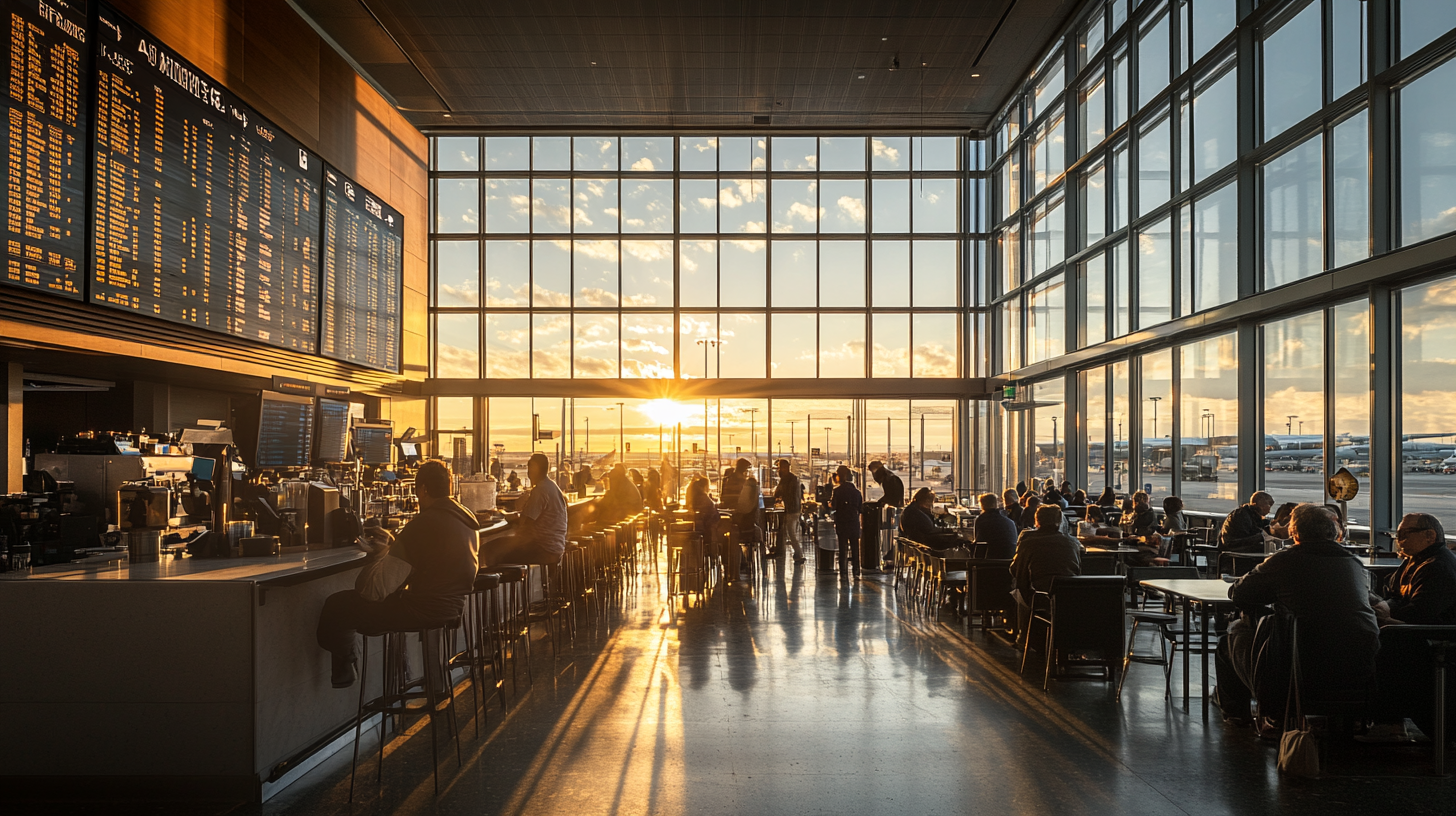
One effective strategy to reduce the likelihood of experiencing flight delays is to book flights scheduled for early in the day. Morning flights are typically less susceptible to the domino effect of delays that can build up as the day progresses. This is because aircraft are often already at the departure airport, eliminating potential delays due to late arrivals from previous flights. Additionally, weather conditions tend to be more stable in the morning hours. Thunderstorms and severe weather are more common in the afternoon and evening, particularly during warmer months. By flying earlier, passengers can avoid some weather-related disruptions. Furthermore, air traffic congestion tends to increase later in the day as more flights take off and land. Booking an early flight can help avoid the bottlenecks that may develop during peak travel times. For more tips on choosing flight times to minimize delays, consider reading Optimal Flight Scheduling Strategies .
Adjust Quickly and Rebook If Necessary
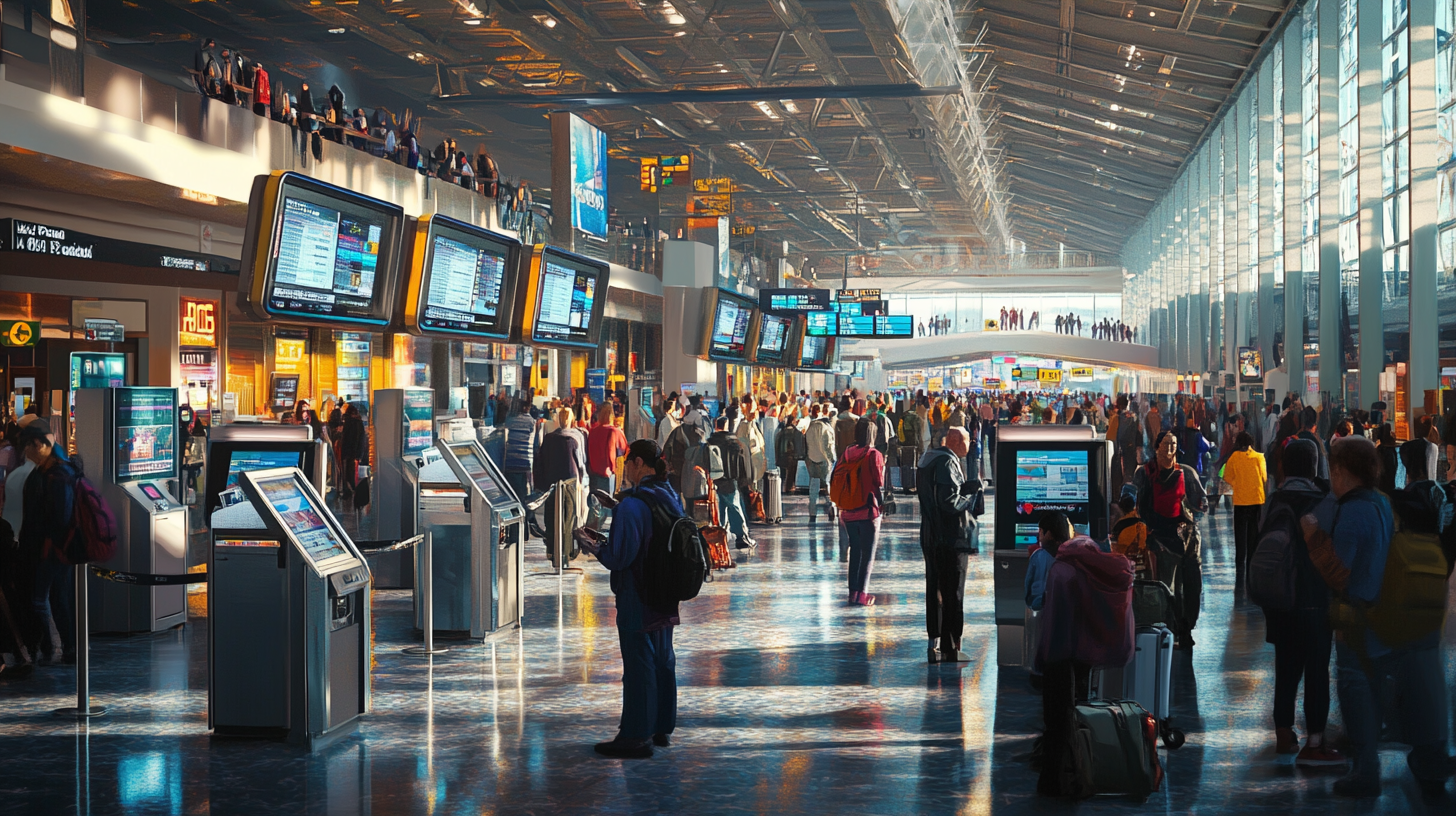
When faced with a flight delay, acting quickly can make a significant difference in minimizing disruption. If your flight is delayed or canceled, proactively seeking alternative flights or routes can help you reach your destination sooner. Many airlines offer the ability to rebook through their mobile apps or websites, allowing passengers to make changes promptly without waiting in long lines at the service desk. Having access to airline apps enables you to view available flights, standby options, and seat availability in real-time. Some airlines automatically rebook passengers on the next available flight and notify them via the app or email. In situations where self-service options are limited, contacting the airline’s customer service directly can expedite the rebooking process. Utilizing multiple channels, such as calling the customer service line while waiting in line at the airport, can increase your chances of securing a suitable alternative. For detailed advice on rebooking strategies during delays, see Navigating Flight Rebooking During Delays and Cancellations .
Utilize Airport Resources
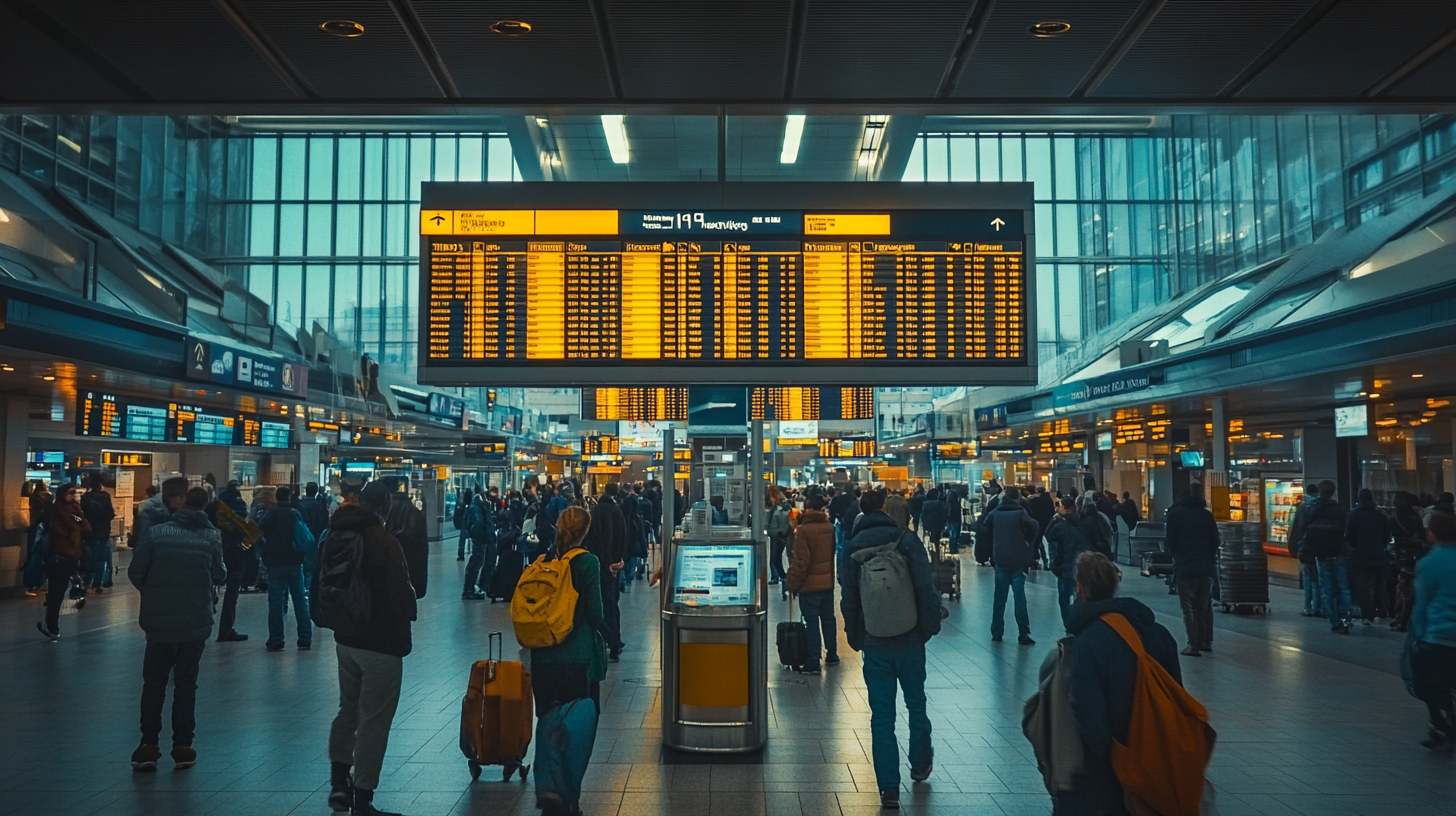
Delays can be stressful, but utilizing airport resources can help make the waiting time more comfortable. Many airports offer a variety of amenities such as free Wi-Fi, charging stations, comfortable seating areas, and entertainment options. Access to airline lounges, where available, can significantly enhance your experience during a delay. These lounges often provide a quieter environment, complimentary food and beverages, shower facilities, and dedicated customer service representatives who can assist with rebooking or other travel needs. Some lounges even offer sleeping pods or workstations. Membership in frequent flyer programs, certain credit cards, or airport lounge networks like Priority Pass may grant you access to these facilities. Even if you don’t have lounge access, exploring the airport’s offerings, such as restaurants, shops, or spa services, can help pass the time pleasantly. For a guide to maximizing airport amenities during delays, refer to Making the Most of Airport Layovers and Delays .
Consider Travel Insurance
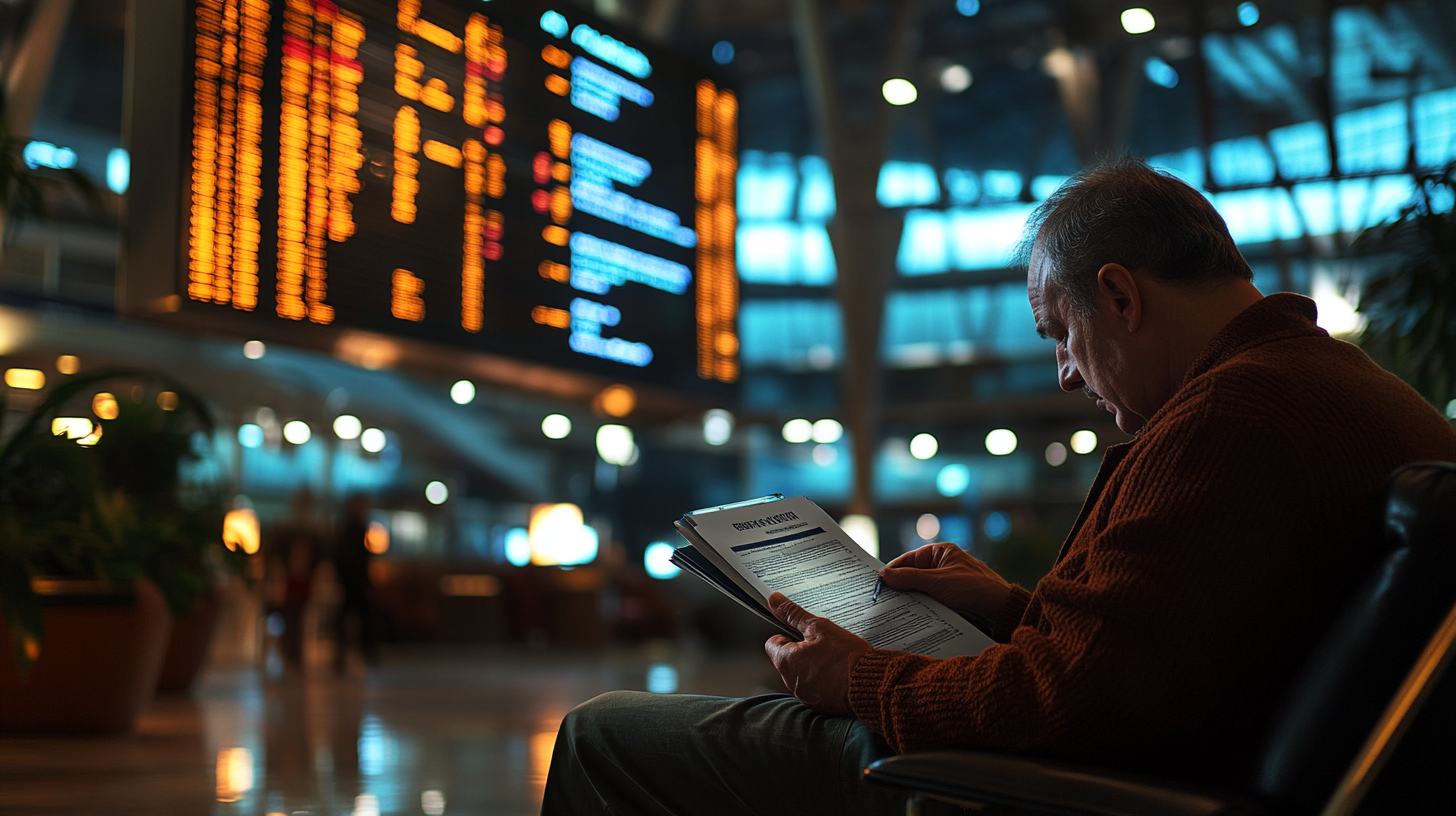
Investing in travel insurance can provide peace of mind and financial protection against unforeseen delays or cancellations. Travel insurance policies may cover expenses incurred due to delays, such as accommodations, meals, or alternative transportation. Some policies offer compensation if your flight is delayed beyond a certain number of hours. It’s important to review the terms carefully to understand the coverage provided and any exclusions. For example, some policies may only cover delays caused by specific reasons or may require documentation from the airline. Additionally, certain credit cards offer travel insurance benefits when you use the card to purchase your airfare. Evaluating your travel needs, the cost of the insurance, and the potential benefits can help determine if purchasing travel insurance is a suitable option for you. For more information on selecting the right travel insurance policy, consult Comprehensive Guide to Travel Insurance and Delays .
Enhancing Your Travel Experience Despite Delays
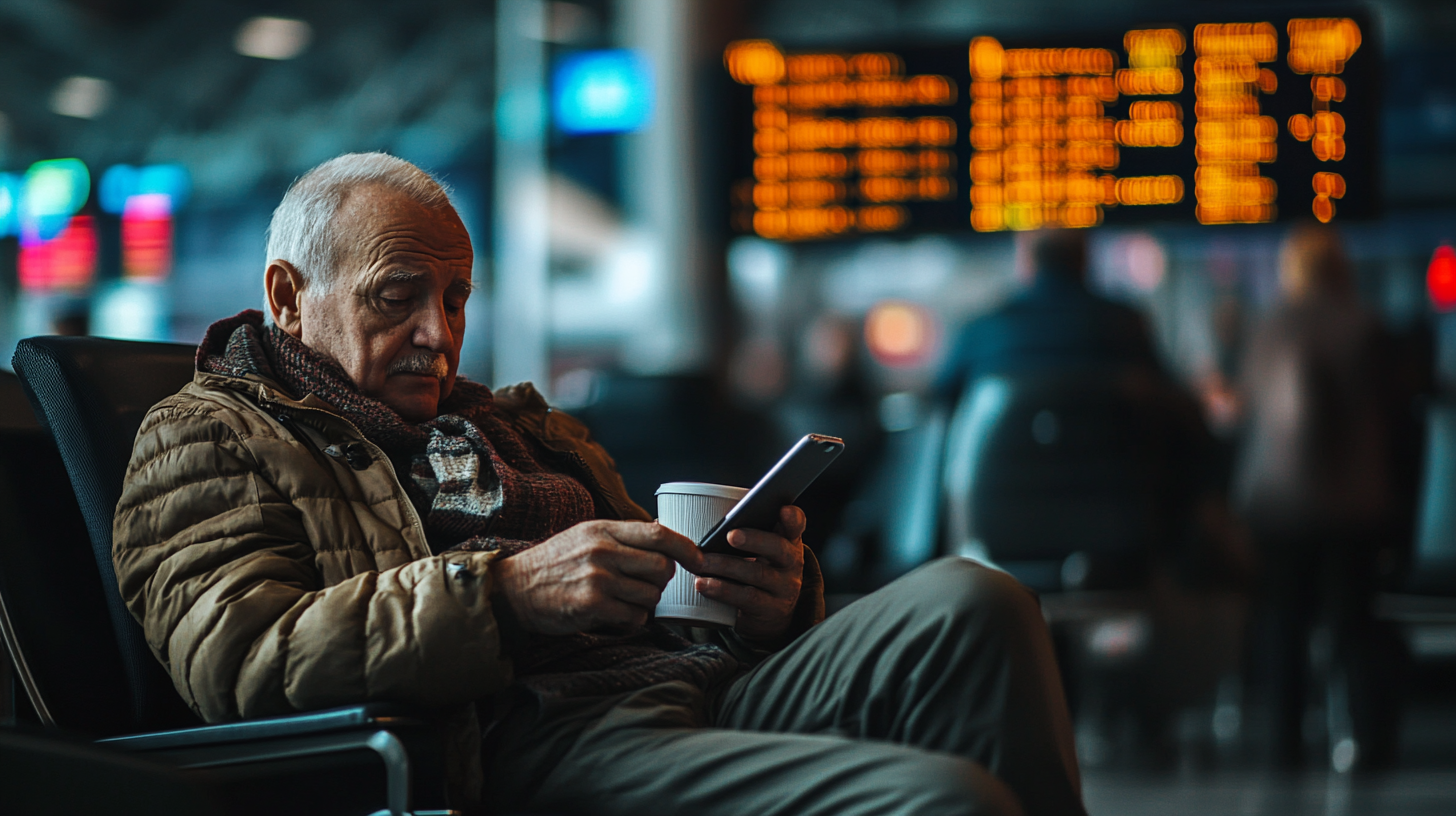
While delays can be disruptive, focusing on enhancing your travel experience can help turn a frustrating situation into an enjoyable one. Some airlines aim to enhance passenger comfort through exceptional in-flight experiences and ground services. From distinctive dining options that cater to various dietary preferences to improved in-flight entertainment systems offering a wide range of movies, TV shows, and music, these amenities can make your journey more enjoyable. Additionally, airlines are increasingly providing comfortable seating options with extra legroom, Wi-Fi connectivity, and power outlets to keep devices charged. Prioritizing airlines that offer these services may enhance your overall travel experience, especially if delays occur. On the ground, some airlines provide complimentary lounge access or vouchers during extended delays, further contributing to passenger comfort. By exploring airline offerings and considering these amenities when booking, passengers can add value to their travel experience and mitigate the inconvenience of unexpected setbacks. For reviews of airlines with the best passenger amenities, see Top Airlines for Comfort and Service During Delays .
Final Thoughts

Flight delays are an inherent part of air travel, rooted in a myriad of factors ranging from weather to operational challenges. By understanding the common causes and staying informed, passengers can navigate delays more effectively and reduce the associated stress. Empowering yourself by knowing your rights, utilizing available resources, and adopting strategies to mitigate the impact of disruptions can make a significant difference in your travel experience. While not all delays are avoidable, proactive planning, patience, and a flexible mindset can help ensure that you reach your destination as smoothly as possible. Embracing these approaches not only helps in dealing with current delays but also prepares you for future travels, making you a more resilient and savvy traveler.
Follow us back to Seat 5A for more insights and tips on air travel.






